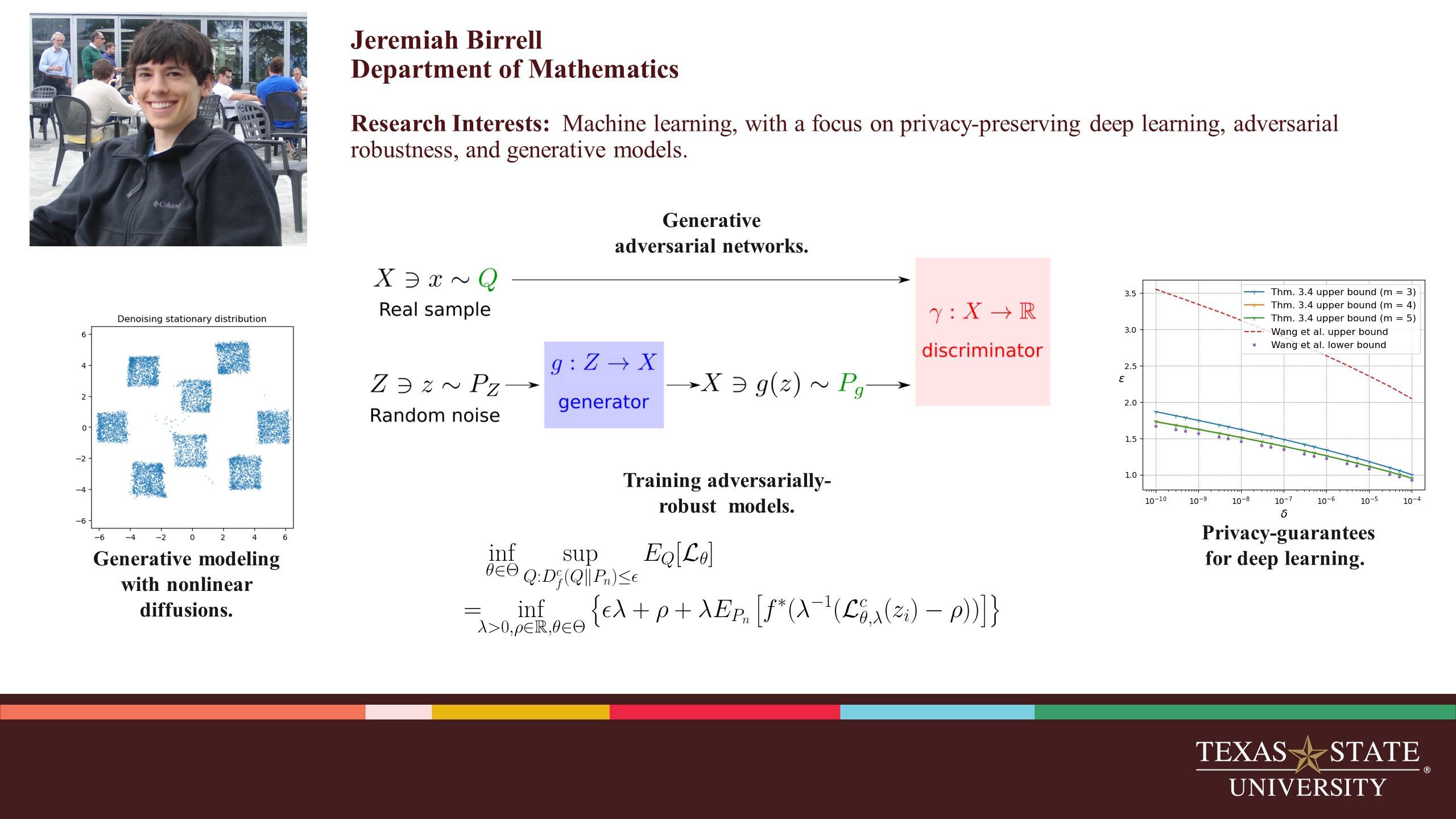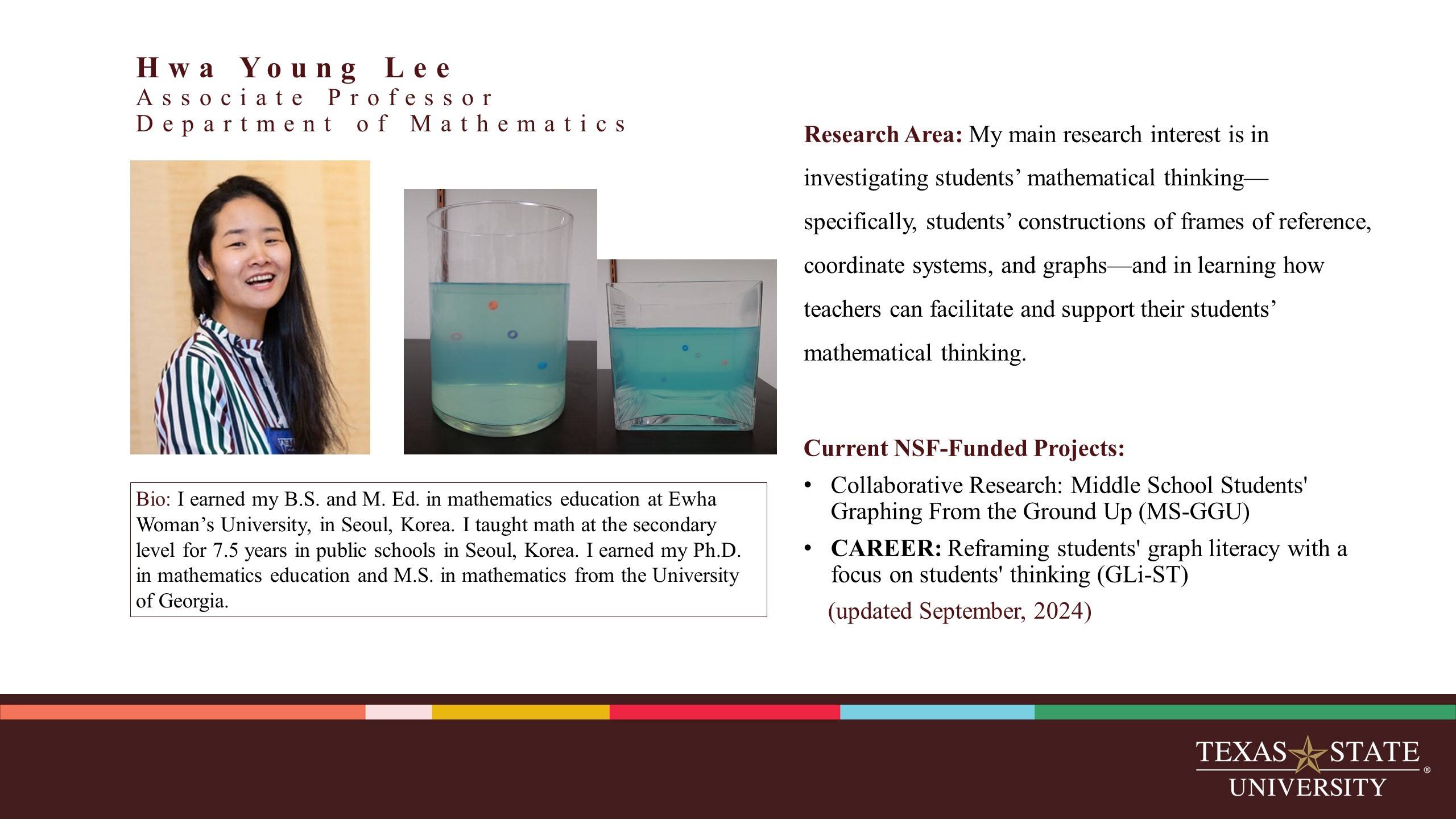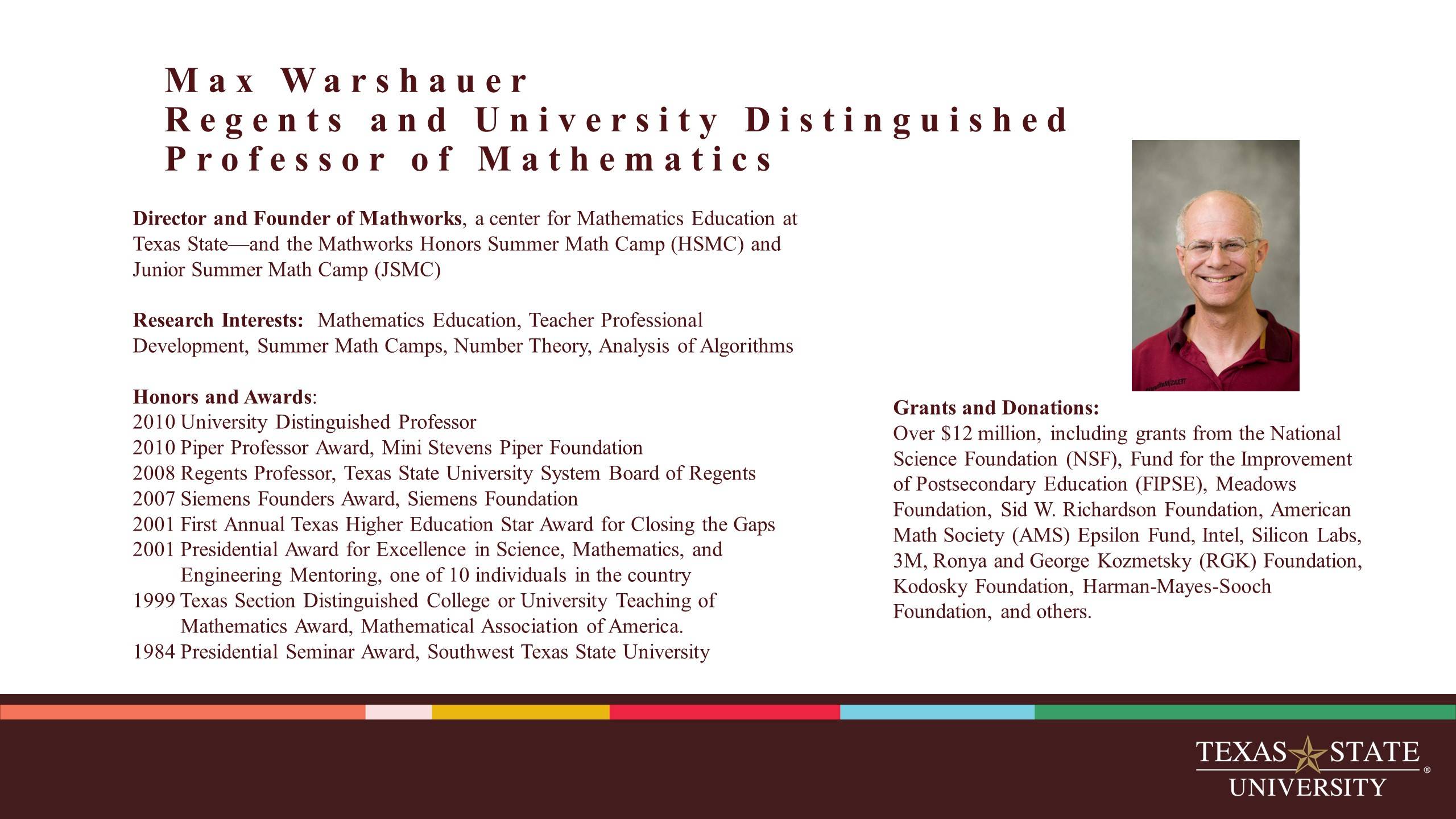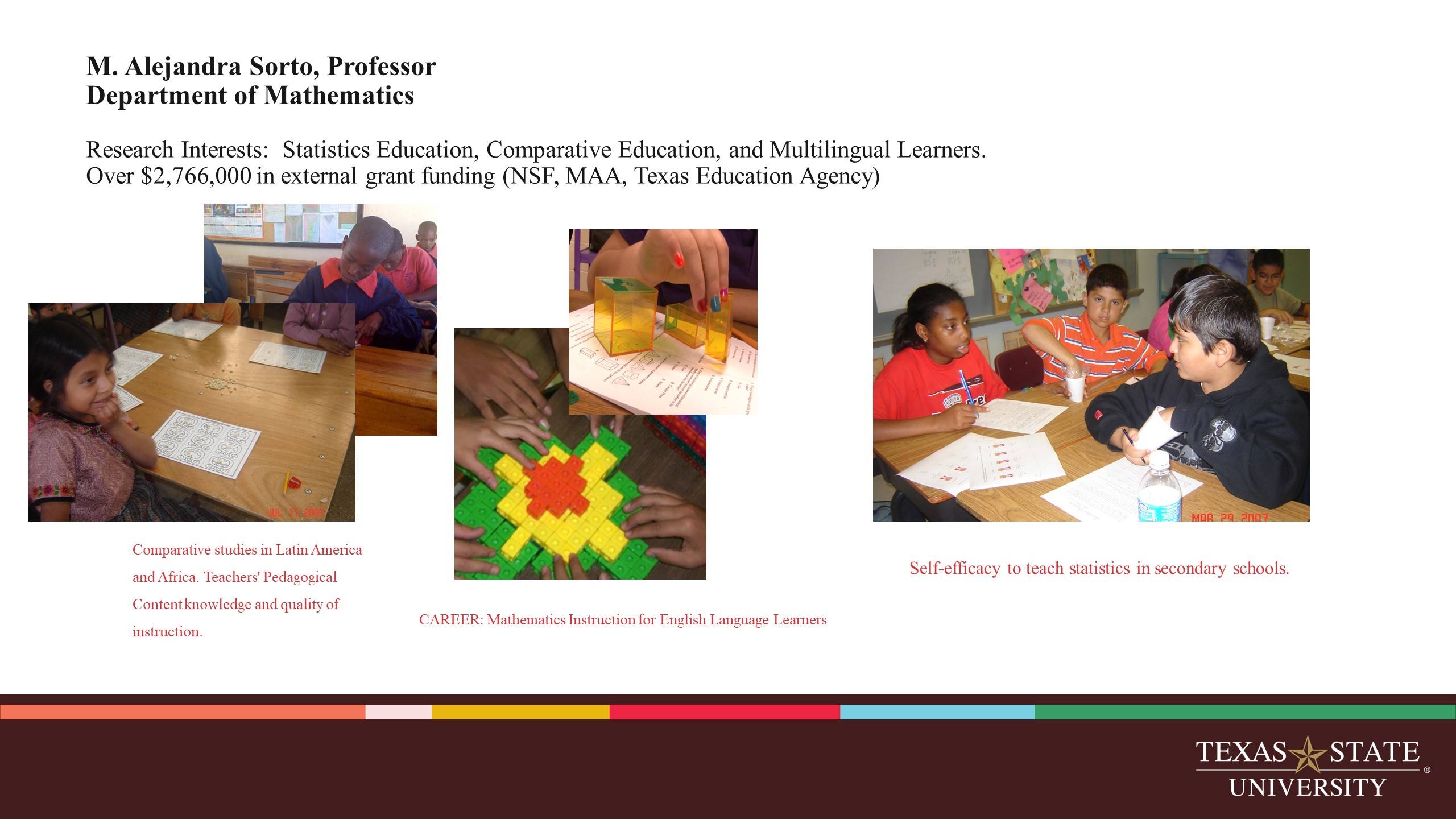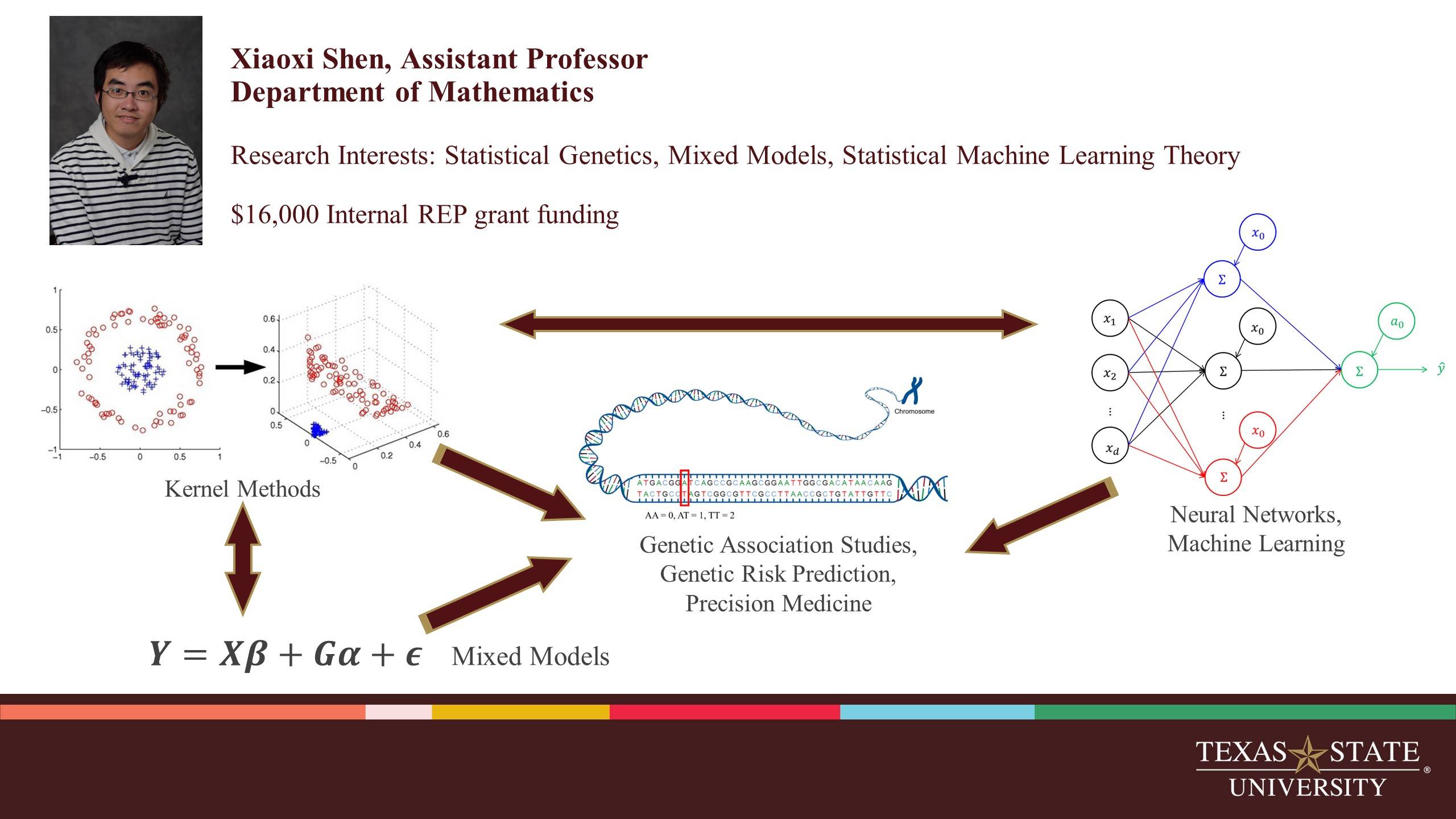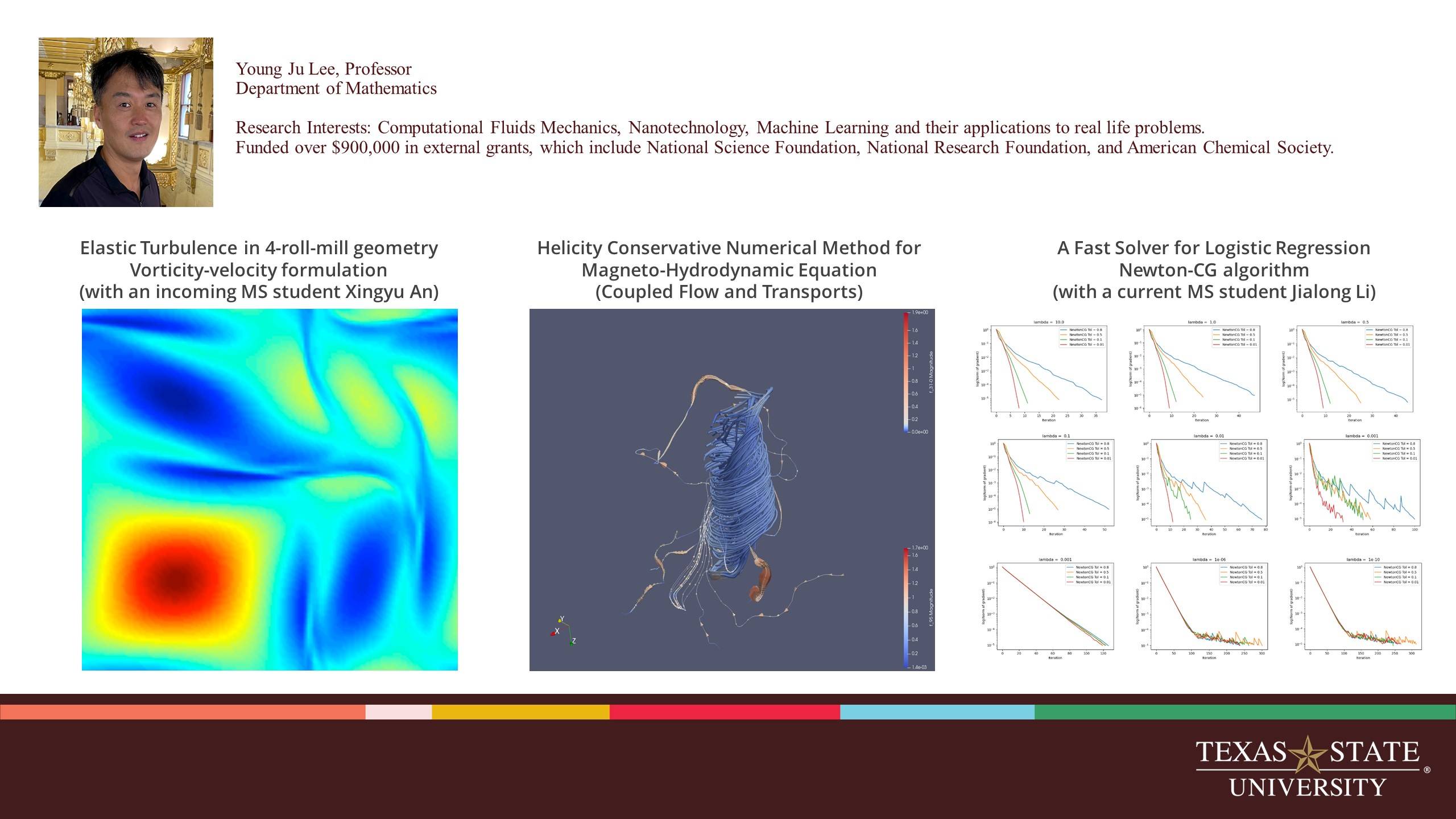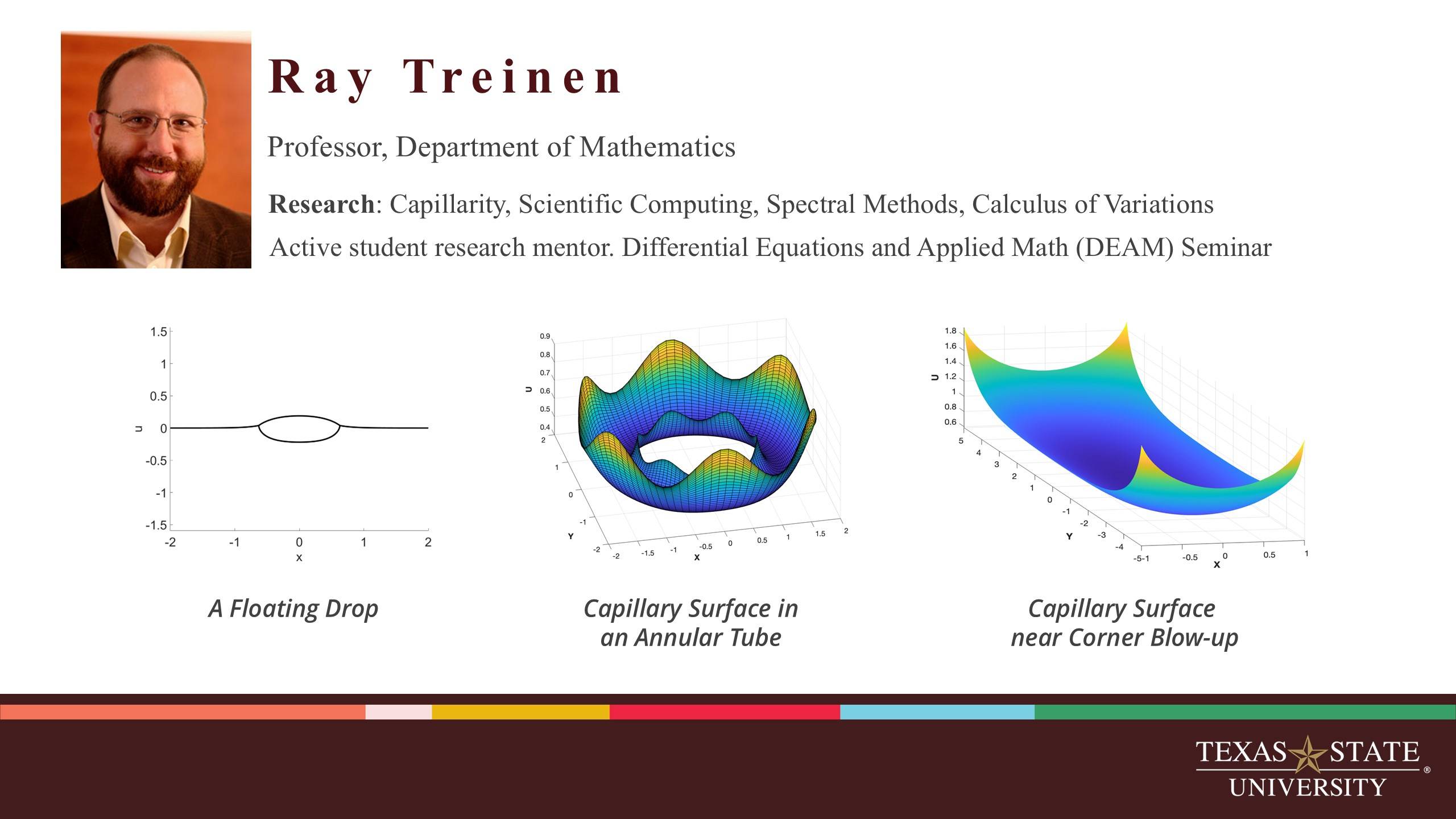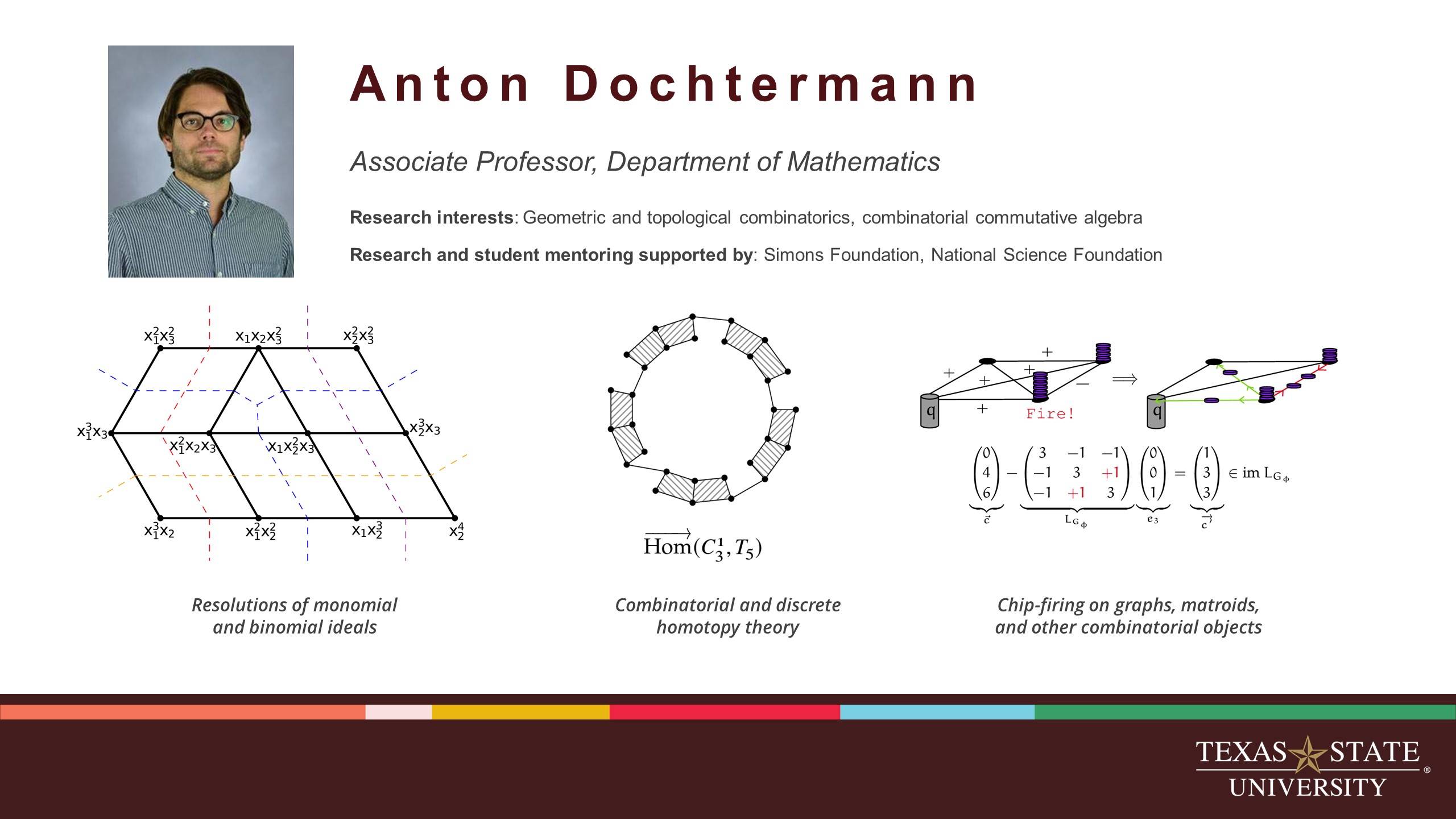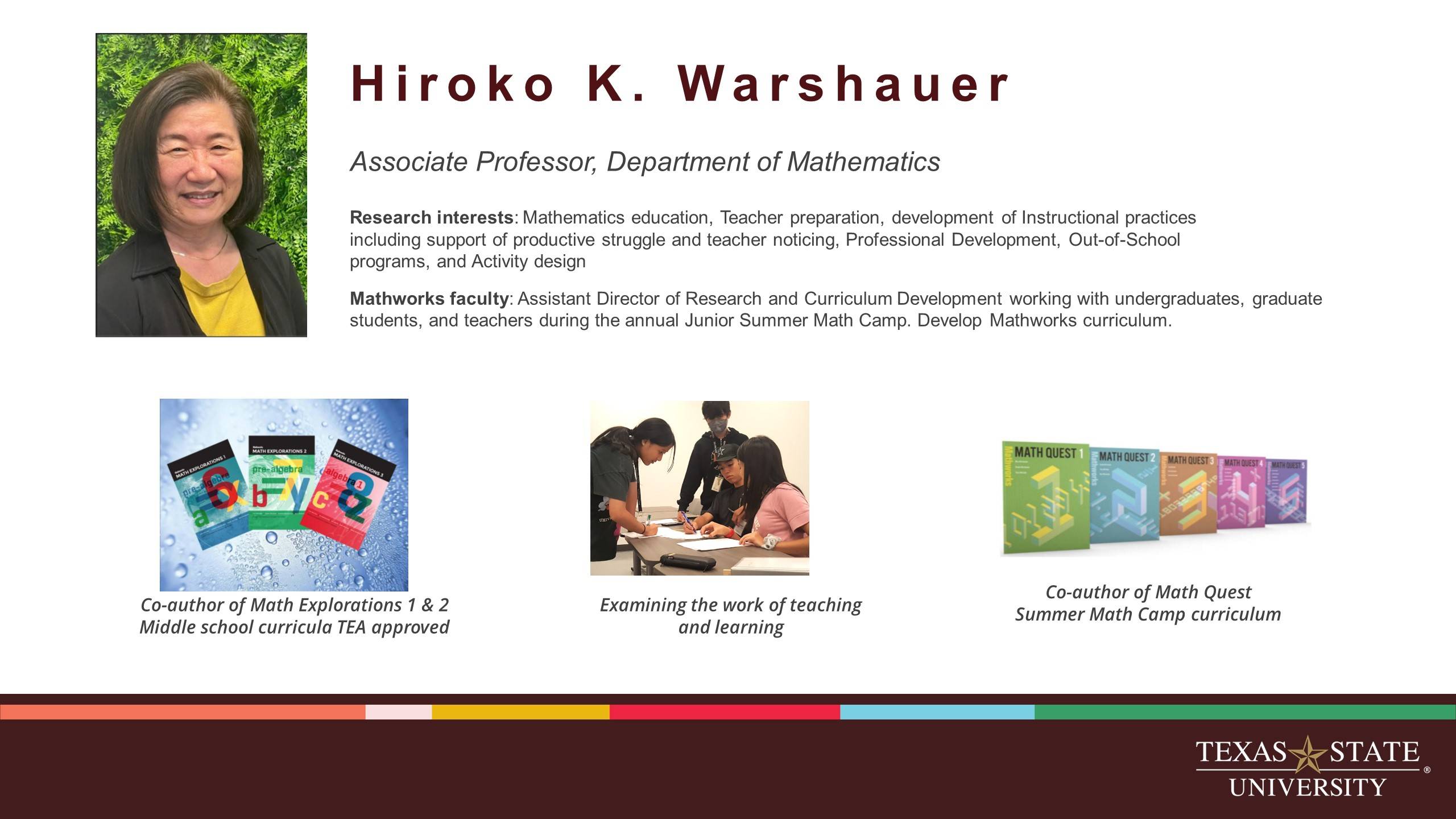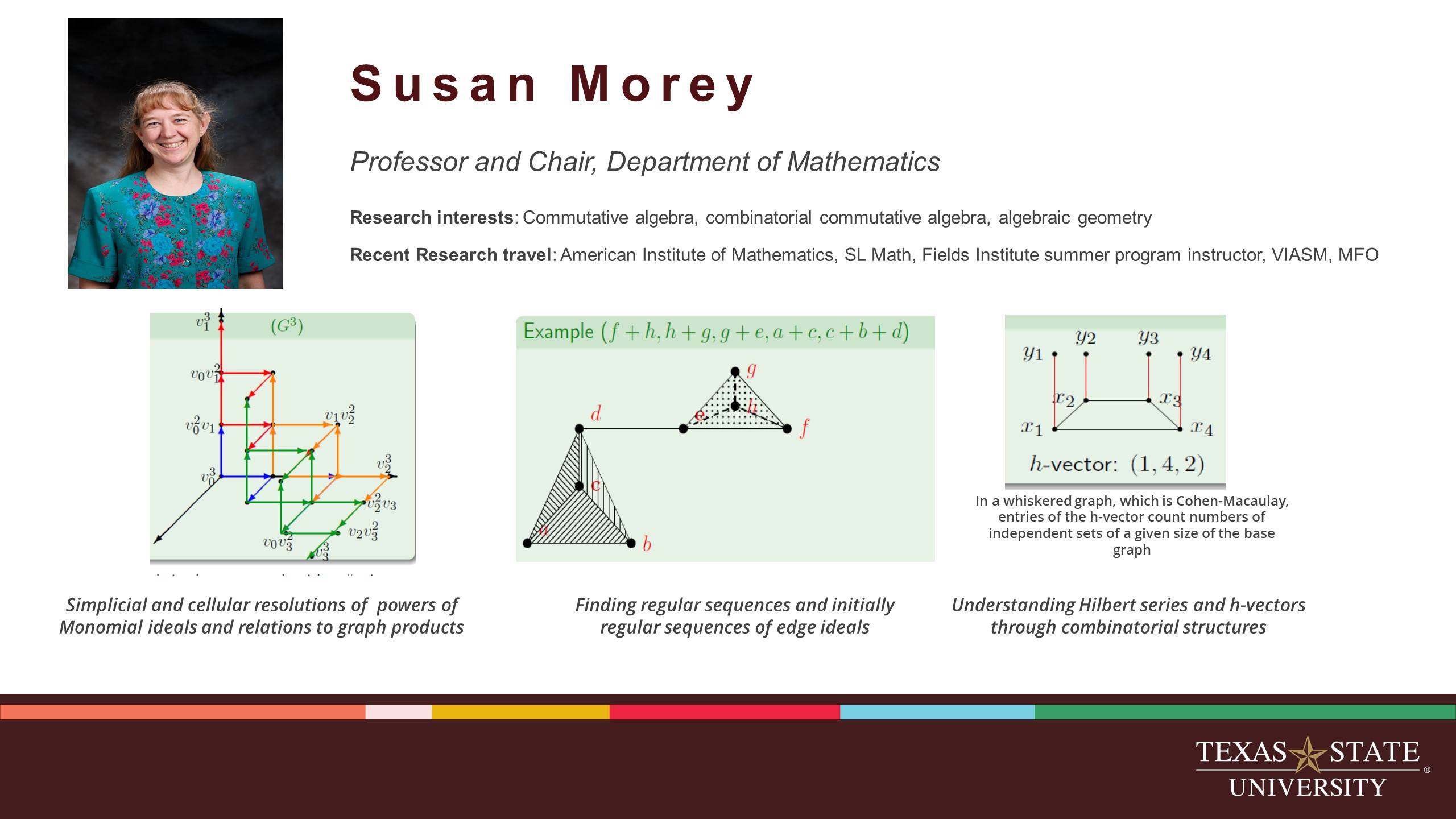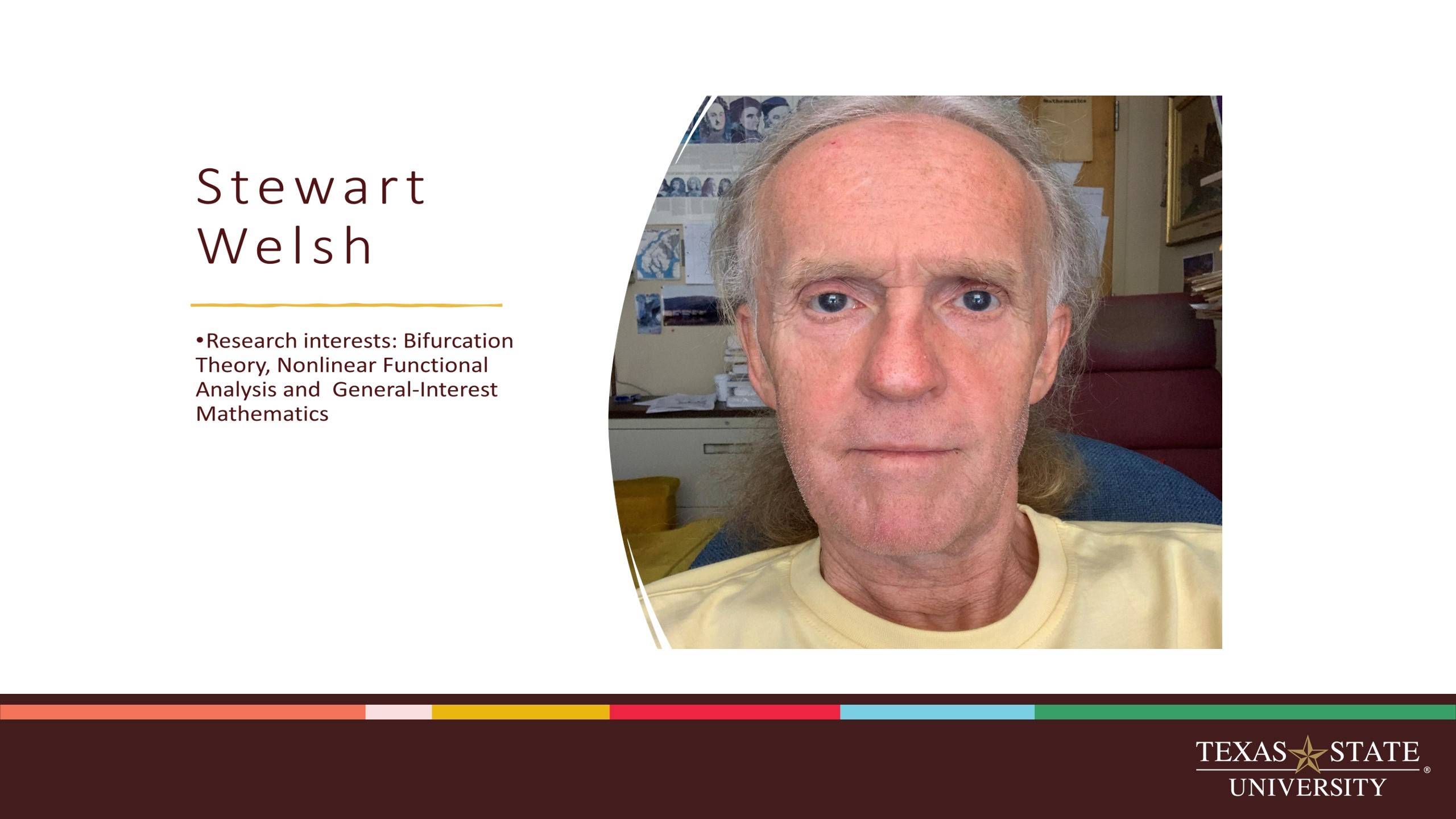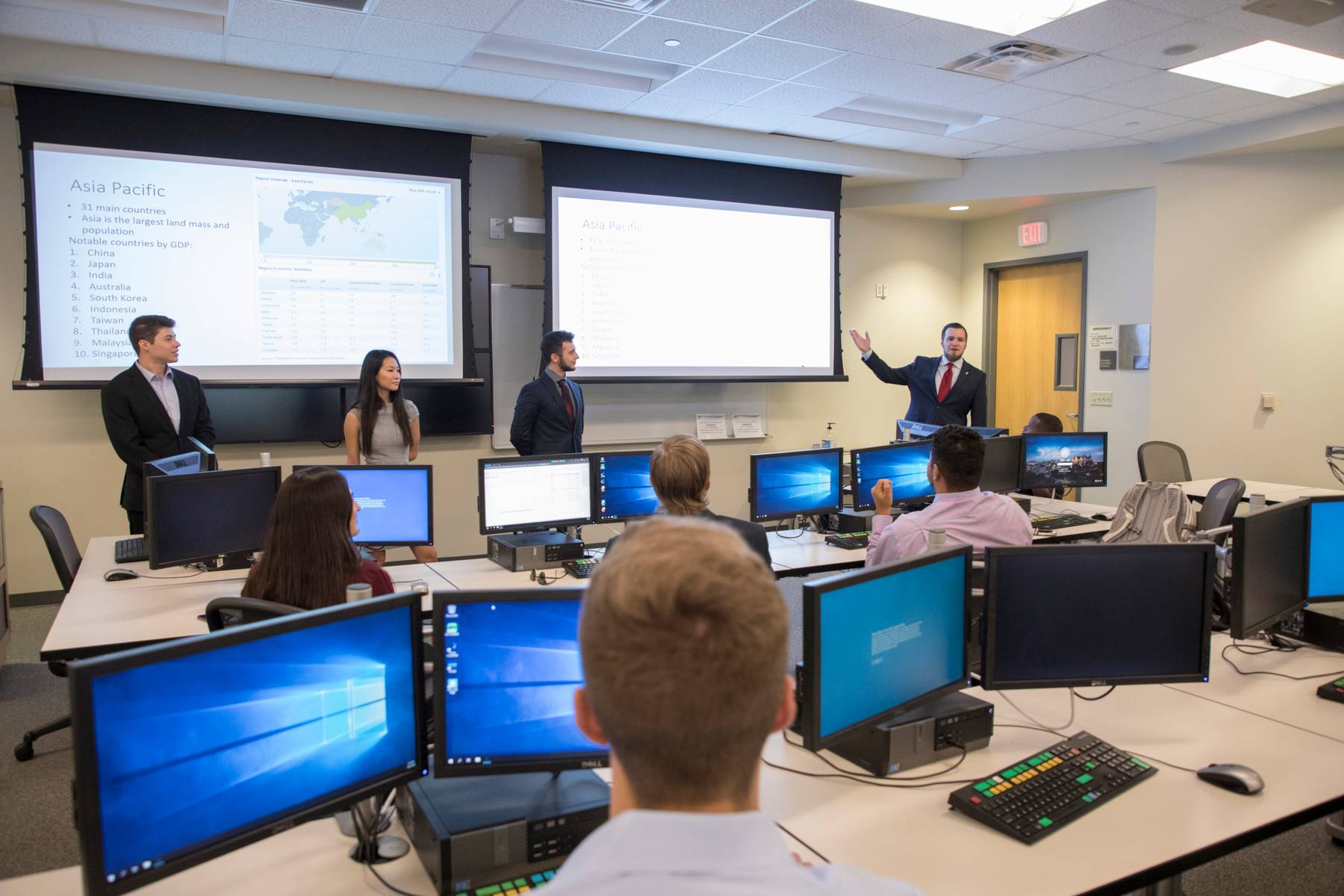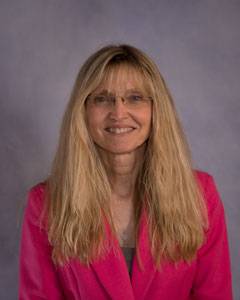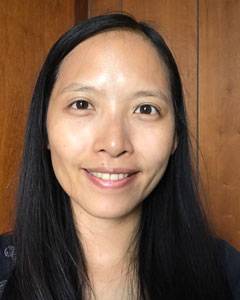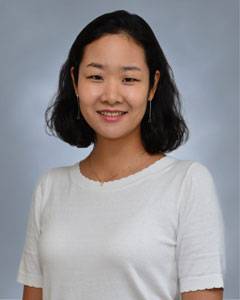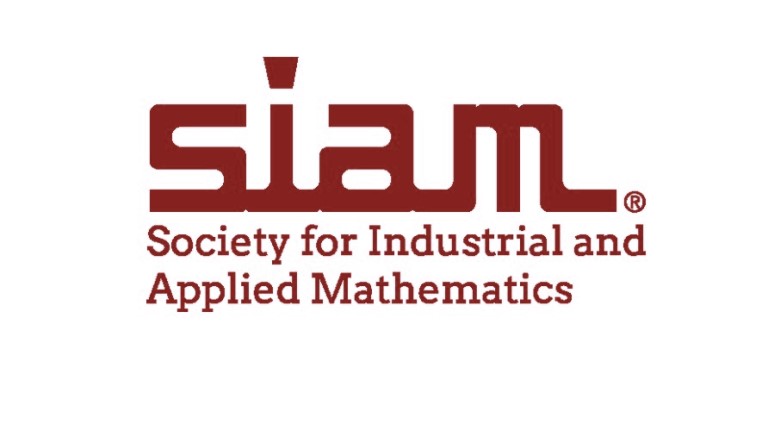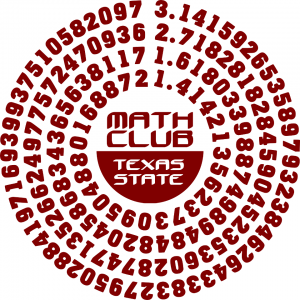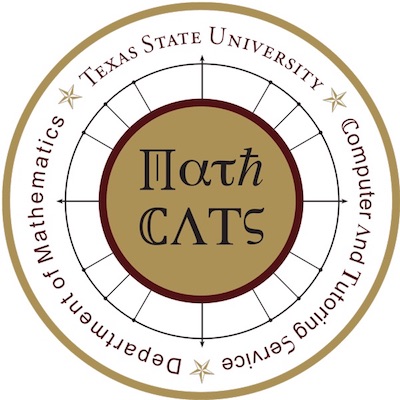Getting involved early can make a real difference in your success at Texas State. Study skills workshops and tutoring help you build strong academic habits and confidence, while student organizations give you the chance to connect with others, develop leadership skills, and feel at home on campus. Start early and set yourself up to thrive as a Bobcat.
See what there is to love about math.

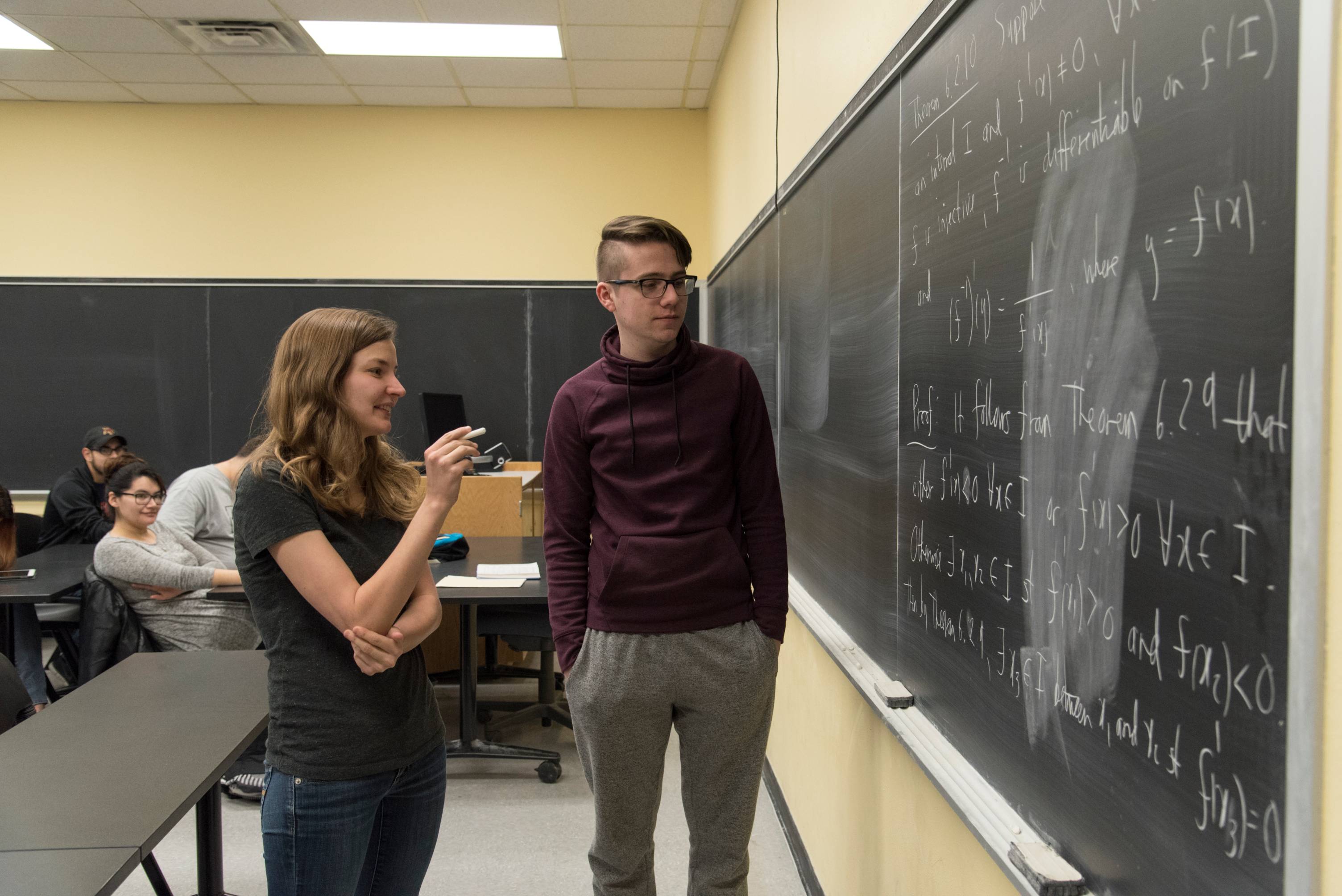
Student Focused
We have a wide offering of general education courses designed to prepare you to major in Business and STEM (Science, Technology, Engineering, and Mathematics) fields.
In Active Grants
Discover our dynamic faculty and the innovative research they’re driving through, high-impact grant awards.
NEXT in Math

Promotion from Assistant Professor to Associate Professor & Tenure
Hiroaki Tanaka

Promotion from Associate Professor to Professor
Kathleen Melhuish and Hiroko Warshauer
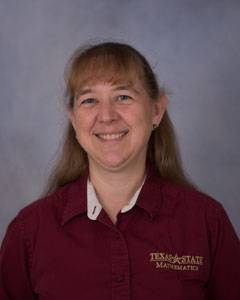
Dr. Susan Morey Receives the University Distinguished Professor Award
This award honors individuals whose performance in teaching, research, and service has been exemplary and recognized at the state, national, and international levels.
@TXST Math
SIAM
–
- Location:
- INGR 3102; 3102
- Cost:
- Free
- Contact:
- Dr. Piyush Shroff (pshroff@txstate.edu)
- Campus Sponsor:
- Society for Industrial and Applied Mathematics
Society for Industrial and Applied Mathematics (SIAM) fosters the development of applied mathematical and computational methodologies needed in various application areas. Applied mathematics, in partnership with computational science, is essential in solving many real-world problems. Through publications, research and community, the mission of SIAM is to build cooperation between mathematics and the worlds of science and technology.
Click here for more information
more about event
- Location:
- DERR 330; 330
- Cost:
- Free
- Contact:
- Jackson Rebrovich (jdr134@txstate.edu)
The Math Club is a student-led organization for anyone who enjoys problem-solving, logical thinking, and exploring math beyond the classroom. Whether you love tackling challenging puzzles, preparing for competitions, or just want to sharpen your skills with friends, our club offers a fun and supportive environment to learn, collaborate, and grow. No matter your experience level, curiosity is all you need—come think, solve, and discover with us!
Our theme for the semester will be:
"Learn Math with AI'' Click here for more information
more about event
Our theme for the semester will be:
"Learn Math with AI'' Click here for more information
- Location:
- DERR 338; 338
- Cost:
- Free
- Contact:
- Hamilton Hardison
hhardison@txstate.edu - Campus Sponsor:
- Department of Mathematics
Faculty and students learn about and discuss issues related to the teaching and learning of mathematics and new findings in mathematics education research. Graduate students in the Mathematics Education programs are expected to attend whenever possible; students from other programs are always welcome.
Click here for more information
more about event
- Location:
- DERR 121; 121
- Cost:
- Free
- Contact:
- Cameron Farnsworth
cfarnsworth@txstate.edu - Campus Sponsor:
- Department of Mathematics
Love a good problem? Like to solve difficult puzzles?
Join professors, graduate students and undergraduates as we tackle problems presented from several mathematical journals. An interest in higher level mathematics is all that is required to join our round table. Offer what you know, learn what you don't in a relaxed environment with some of our department's finest! Click here for more information
more about event
Join professors, graduate students and undergraduates as we tackle problems presented from several mathematical journals. An interest in higher level mathematics is all that is required to join our round table. Offer what you know, learn what you don't in a relaxed environment with some of our department's finest! Click here for more information
- Location:
- DERR 229; 229
- Cost:
- Free
- Contact:
- Ray Treinen
treinen@txstate.edu - Campus Sponsor:
- Department of Mathematics
This week our own Mary Vaughan will speak in the DEAM seminar. We will meet on Friday from 1-2pm in DERR 229. We will also have zoom access though I would encourage you to attend in-person if that is an option.
Title: Continuous symmetrizations and uniqueness of solutions to nonlocal equations
Abstract: In this talk, we will begin by briefly discussing fractional thin film equations which can be seen as the gradient flow of nonlocal energy functionals. We establish the uniqueness of nonnegative stationary solutions and present their explicit form. Towards this end, we show that nonlocal energies are strictly decreasing under the continuous Steiner rearrangement. Moreover, we use a convenient representation for fractional energies of good functions in terms of their level sets to expose a quantification of asymmetry. This work is joint with Matías Delgadino (UT Austin). Click here for more information
more about event
Title: Continuous symmetrizations and uniqueness of solutions to nonlocal equations
Abstract: In this talk, we will begin by briefly discussing fractional thin film equations which can be seen as the gradient flow of nonlocal energy functionals. We establish the uniqueness of nonnegative stationary solutions and present their explicit form. Towards this end, we show that nonlocal energies are strictly decreasing under the continuous Steiner rearrangement. Moreover, we use a convenient representation for fractional energies of good functions in terms of their level sets to expose a quantification of asymmetry. This work is joint with Matías Delgadino (UT Austin). Click here for more information
- Location:
- Online Only
- Cost:
- Free
- Contact:
- Hamilton Hardison
hhardison@txstate.edu - Campus Sponsor:
- Department of Mathematics
This Friday's (Feb 6) mathematics education seminar will feature Dr. Candace Walkington (Southern Methodist University) who will speak on "Generative AI in Mathematics Teaching and Learning." We will meet virtually via zoom from 1–2pm central at txstate.zoom.us….
Generative AI in Mathematics Teaching and Learning
Generative AI is increasingly becoming part of teaching and learning at both the K-12 and college levels. This talk will describe current trends and research in undergraduate mathematics education regarding students’ and instructors’ use of generative AI tools. The talk will also describe the possibilities of generative AI for personalized learning in K-12 mathematics contexts. The talk will argue that generative AI tools are being widely implemented without sufficient empirical evidence that their benefits outweigh their risks.
Dr. Candace Walkington is a Professor and the Annette and Harold Simmons Centennial Chair in the Department of Teaching and Learning at Southern Methodist University. Her research examines technology-enhanced approaches to mathematics instruction, including personalization, intelligent tutoring, augmented reality, virtual reality, and motion capture. She has received over $10 million in research grants from the federal government and is currently Principal Investigator on 3 NSF grants that examine issues of AI in mathematics education. In 2019, she was awarded the highest early career honor for scientists (PECASE) by the White House, and in 2021, she was identified as one of the three most influential researchers in the world in AI in mathematics education (Hwang & Tu, 2021). Click here for more information
more about event
Generative AI in Mathematics Teaching and Learning
Generative AI is increasingly becoming part of teaching and learning at both the K-12 and college levels. This talk will describe current trends and research in undergraduate mathematics education regarding students’ and instructors’ use of generative AI tools. The talk will also describe the possibilities of generative AI for personalized learning in K-12 mathematics contexts. The talk will argue that generative AI tools are being widely implemented without sufficient empirical evidence that their benefits outweigh their risks.
Dr. Candace Walkington is a Professor and the Annette and Harold Simmons Centennial Chair in the Department of Teaching and Learning at Southern Methodist University. Her research examines technology-enhanced approaches to mathematics instruction, including personalization, intelligent tutoring, augmented reality, virtual reality, and motion capture. She has received over $10 million in research grants from the federal government and is currently Principal Investigator on 3 NSF grants that examine issues of AI in mathematics education. In 2019, she was awarded the highest early career honor for scientists (PECASE) by the White House, and in 2021, she was identified as one of the three most influential researchers in the world in AI in mathematics education (Hwang & Tu, 2021). Click here for more information
- Location:
- DERR 238; 238
- Cost:
- Free
- Contact:
- Illona Weber ih10@txstate.edu
- Campus Sponsor:
- Department of Mathematics
Math CATS is here to assist in almost all MATH courses! If you're intimidated by the subject, come in and let's problem solve together. Tutors are here to help reiterate, reinforce and help you relate to the content you heard in lecture. FREE & NO APPOINTMENT NEEDED!
Click here for more information
more about event

